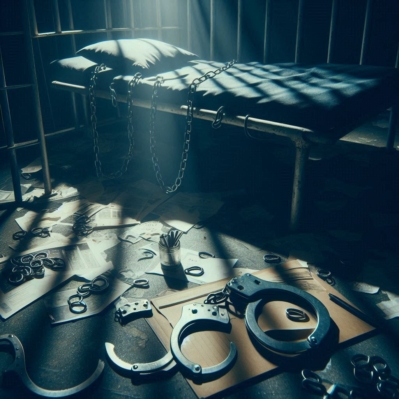Al Shimari, et al. vs. Caci Premier Technology, Inc.
Case Background
On August 8, 2008, Plaintiff Suhail Najim Abdullah Al Shimari and others filed a Personal Injury lawsuit in the United States District Court, Virginia Eastern (Case number: 1:08cv827). This case was assigned to District Judge Leonie M. Brinkema and referred to Magistrate Judge John F. Anderson
Cause
In 2003–2004, the now-infamous Abu Ghraib prison scandal exposed systematic detainee abuse by military contractors. Leading military contractor CACI International Inc. and its subsidiary CACI Premier Technology deployed interrogators who actively participated in and directed unauthorized prisoner abuse. Key perpetrators, including CACI employees Steven “Big Steve” Stefanowicz and Daniel Johnson, orchestrated severe interrogation techniques that violated international law and military protocols. Operating under minimal supervision, the military contractors earned millions through their government contract for interrogation services. CACI’s leadership concealed evidence by destroying documents, hiding detainees from Red Cross inspections, and launching aggressive legal campaigns against media outlets that attempted to expose the military contractor’s role in the prisoner abuse scandal.
Injuries
The abuse by military contractors inflicted severe and lasting trauma on four Iraqi civilian detainees. CACI employees and their co-conspirators subjected the prisoners to methodical torture, including electric shocks, systematic beatings, and prolonged stress positions. They deprived detainees of basic necessities like food, water, and sleep while exposing them to extreme temperatures. Detainees were forced into prolonged naked stress positions, threatened with unleashed dogs, and subjected to mock executions. This abuse resulted in multiple broken bones, permanent vision loss, and devastating psychological trauma that persisted long after release. The military contractors specifically targeted these four detainees, none of whom ever faced formal charges.
Damages
The systematic detainee abuse by military contractors led to extensive compensatory damage claims for severe physical injuries, ongoing psychological trauma, and acute emotional distress. The prisoners sought substantial punitive damages to promote military contractor oversight reform and deter future misconduct in war zones. Given the severity of contractor-inflicted injuries, the plaintiffs demanded damages “far in excess” of the $75,000 jurisdictional minimum, plus comprehensive attorney fees and legal costs. This case underscored the need for enhanced military contractor accountability and improved detainee treatment protocols.
Key Arguments and Proceedings
Legal representation
- Plaintiff(s): Suhail Najim Abdullah Al Shimari | Salah Hasan Nusaif Jasim Al-Ejaili | Asa’ad Hamza Hanfoosh Al-Zuba’e
- Counsel for Plaintiff: George Brent Mickum IV | Jennifer M. Kinsley | Susan L. Burke | Alexandra Elise Mahler-Haug | Andrew Inad Haddad | Baher Azmy | Bonita Lynn Robinson | Cary Citronberg | Charles Bennett Molster III | John Kenneth Zwerling | Katherine M. Gallagher | Michael Francis Buchanan | Mohammed M. Alomari | Muhammad Usman Faridi | Thomas Robert Kicak | William Scott Kim
- Defendant(s):Caci Premier Technology, Inc. | United States of America
- Counsel for Defendants: John F. O’Connor, Jr. | Joseph McClure | Linda C. Bailey | Nina J. Ginsberg | William David Dolan, III | Daniel Duane Mauler | Lauren A. Wetzler | R. Trent McCotter
Key Arguments or Remarks by Counsel
Baher Azmy, a lawyer for the Center for Constitutional Rights, which filed the lawsuit on the plaintiffs’ behalf, called the verdict “an important measure of Justice and accountability” and praised the three plaintiffs for their resilience, “especially in the face of all the obstacles CACI threw their way.”
Lawyers for the plaintiffs argued that CACI was responsible for its own employees’ misdeeds. They said provisions in CACI’s contract with the Army, as well as the Army Field Manual, make clear that CACI is responsible for overseeing its own workers.
CACI, as one of its defenses, argued it shouldn’t be liable for any misdeeds by its employees if they were under the control and direction of the Army, under a legal principle known as the “borrowed servants” doctrine.
Claims
The detainee abuse lawsuit outlined multiple causes of action targeting military contractor liability. The primary claims included torture and conspiracy to torture, violating international laws on prisoner treatment. Plaintiffs also pursued war crimes violations based on the contractors’ direct involvement in detainee abuse. Additional claims included cruel and degrading treatment, systematic assault and battery, and both intentional and negligent infliction of emotional distress. The lawsuit specifically targeted CACI’s negligent hiring and supervision practices that enabled military contractor abuse. Each claim highlighted how the contractors knowingly violated established protocols and actively concealed detainee mistreatment evidence.
Defense
CACI Premier Technology, Inc. (CACI PT) responded to the plaintiffs’ complaint by denying involvement in or responsibility for detainee abuse at Abu Ghraib prison. They asserted it had no knowledge or sufficient information to confirm or deny specific allegations of detainee mistreatment and explicitly denied participating in, supporting, or acquiescing to any abuse. The company maintained that it operated strictly within U.S. law and military protocols, emphasizing its role as a military contractor limited to providing civilian interrogators under contract with the U.S. Army.
Additionally, CACI PT stated its employees were under the direct operational control of the U.S. Army, which retained exclusive authority over detainee operations. The company argued that any misconduct would have been unauthorized and outside the scope of the employees’ duties, for which CACI PT would not be liable. Further, CACI PT also denied involvement in any conspiracy to torture detainees, arguing that the allegations lacked factual basis.
The defense referenced an ongoing appeal, claiming it could potentially affect the court’s jurisdiction. CACI PT asserted its employees were expected to comply with U.S. law and military directives at all times and claimed it had no knowledge of misconduct or conspiracy by others. In response to accusations of a cover-up, CACI PT admitted communicating with media outlets and taking legal actions to correct alleged false information but denied involvement in any detainee treatment cover-up. CACI PT concluded by denying all claims of negligence, aiding and abetting, and other allegations.
Jury Verdict
On November 12, 2024, the jury found CACI Premier Technology, Inc. liable for conspiring with military personnel to inflict torture and cruel, inhuman, or degrading treatment on detainees at the Abu Ghraib hard site. The jury awarded the plaintiff $3 million in compensatory damages and $11 million in punitive damages, totaling $14 million.
Court Documents:
Available Upon Request
Press Release:
https://time.com/7175830/abu-ghraib-jury-trial-million-contractor/







Leave A Comment